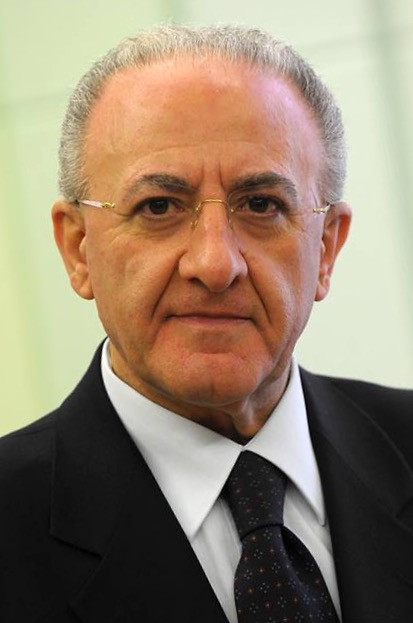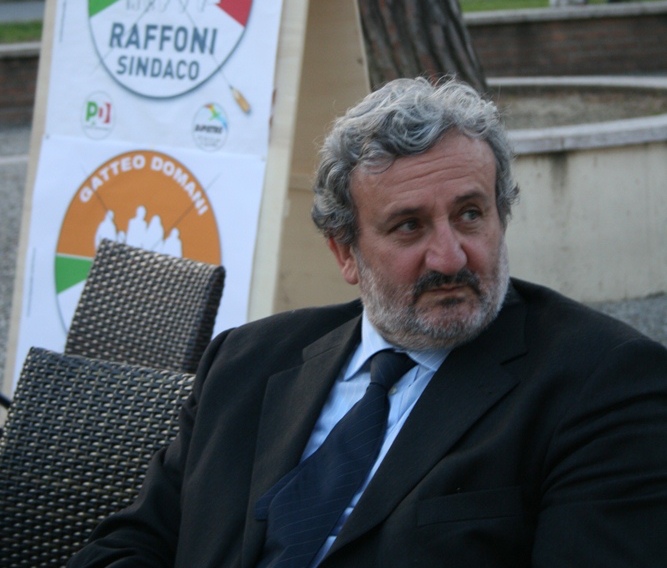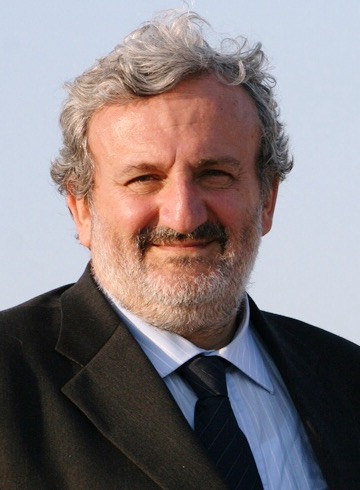|
2020 Italian Regional Elections
The 2020 Italian regional elections took place in nine regions of Italy during 2020. Elections took place on 26 January 2020 in Emilia-Romagna and Calabria, and on 20 and 21 September in Aosta Valley, Campania, Liguria, Marche, Apulia, Tuscany, and Veneto. The September elections took place concurrently with the 2020 Italian constitutional referendum. Overall results Regional councils Regional presidents Results by region Calabria Emilia-Romagna Aosta Valley Apulia Campania Liguria Marche Tuscany Veneto References {{DEFAULTSORT:Italian regional elections, 2020 2020 2020 was heavily defined by the COVID-19 pandemic, which led to global social and economic disruption, mass cancellations and postponements of events, worldwide lockdowns and the largest economic recession since the Great Depression in t ... 2020 elections in Italy ... [...More Info...] [...Related Items...] OR: [Wikipedia] [Google] [Baidu] |
Aosta Valley
, Valdostan or Valdotainian it, Valdostano (man) it, Valdostana (woman)french: Valdôtain (man)french: Valdôtaine (woman) , population_note = , population_blank1_title = Official languages , population_blank1 = Italian French , demographics_type1 = Citizenship , demographics1_footnotes = , demographics1_title1 = Italian , demographics1_info1 = 95% , demographics1_title2 = , demographics1_info2 = , demographics1_title3 = , demographics1_info3 = , timezone1 = CET , utc_offset1 = +1 , timezone1_DST = CEST , utc_offset1_DST = +2 , postal_code_type = , postal_code = , area_code_type = ISO 3166 code , area_code = IT-23 , blank_name_sec1 = GDP (nominal) , blank_info_sec1 = €4.9 billion (2018) , blank1_name_sec1 = GDP per capita , blank1_info_sec1 = €38,900 (2018) , blank2_name_sec1 = HDI ... [...More Info...] [...Related Items...] OR: [Wikipedia] [Google] [Baidu] |
2020 Calabrian Regional Election
The 2020 Calabrian regional election took place in Calabria, Italy, on 26 January 2020. The result was the victory of the centre-right coalition and the election of Jole Santelli as President of Calabria. The election was held concurrently with a regional election in Emilia-Romagna. Electoral system Even if a district list is linked to a regional list that exceeds 8% of the vote, the district list must obtain at least 4% of the vote in the whole region in order to elect their own representatives. To ensure governance, the candidate who receives the most votes wins a majority bonus The majority bonus system (MBS) is a form of semi-proportional representation used in some European countries. Its feature is a majority bonus which gives extra seats or representation in an elected body to the party or to the joined parties with ... of 55% of the seats. Parties and candidates Opinion polls Candidates Parties Results Voter turnout See also * 2020 Italian regional el ... [...More Info...] [...Related Items...] OR: [Wikipedia] [Google] [Baidu] |
2020 Ligurian Regional Election
The 2020 Ligurian regional election took place in Liguria, Italy on 20–21 September 2020. It was originally scheduled to take place on May 31, 2020, but it was delayed due to the coronavirus pandemic in Italy. The result of the election was an absolute win of the incumbent President of Liguria, Giovanni Toti. Electoral system The Regional Council of Liguria is composed of 30 members, plus the president elect. The president elect is the candidate winning a plurality of votes at the election. Within the council, 24 seats are elected in provincial constituencies by proportional representation. The remaining 6 councillors are assigned as a majority bonus if the winning candidate has less than 18 seats, otherwise they are distributed among the losing coalitions. A single list must get at least 3% of the votes in a province in order to access the proportional distribution of seats, unless the list is connected to a coalition with more than 5% of the vote. Parties and candidates O ... [...More Info...] [...Related Items...] OR: [Wikipedia] [Google] [Baidu] |
Vincenzo De Luca
Vincenzo De Luca (born 8 May 1949) is an Italian politician, member of the Democratic Party, currently serving as President of the Campania region since 18 June 2015. De Luca also served as Mayor of Salerno for more than 17 years, becoming one of the longest serving mayors in Italy. De Luca has often been described as a populist politician and became known for his controversial statements. He is nicknamed ''Lo Sceriffo'' ("The Sheriff"), due to his outspokenly impetuous and strong government style, but also ''Don Vicienzo''. Early life De Luca was born in 1949 in Ruvo del Monte, in the Province of Potenza. He then moved to Salerno at an early age alongside his family. After obtaining a high school diploma at the Liceo classico Torquato Tasso of Salerno, he graduated in philosophy at the University of Salerno. Before entering in politics, he work as a philosophy teacher in high schools. In 1979, he married Rosa Zampetti, a sociologist, from who he had two sons Piero and Ro ... [...More Info...] [...Related Items...] OR: [Wikipedia] [Google] [Baidu] |
2020 Campanian Regional Election
The 2020 Campanian regional election took place in Campania, Italy, on 20 and 21 September 2020. It was originally scheduled to take place on 31 May 2020, but it was delayed due to the coronavirus pandemic in Italy. Electoral system The Regional Council of Campania () is composed of 50 members, elected in a party-list proportional representation system. The seats are divided among five constituencies corresponding to the region's provinces: Avellino with 4 seats, Benevento with 2 seats, Caserta with 8 seats, Naples with 27 seats, and Salerno with 9 seats. Regional councillors are selected from party lists at the constituency level, with an electoral threshold at 3%. An additional seat is reserved to the President-elect, who is the candidate winning a plurality of votes. A majority bonus of 60% is granted to the winning coalition. Background In February 2020, the direction of the Democratic Party (PD) officially confirmed that the centre-left candidate for President of Campania wo ... [...More Info...] [...Related Items...] OR: [Wikipedia] [Google] [Baidu] |
Michele Emiliano
Michele Emiliano (born 23 July 1959) is an Italian politician and former judge. He is the incumbent president of Apulia Region since June 2015, and he previously served as mayor of Bari from 2004 to 2014. Emiliano has often been considered a populist and regionalist politician. Early life and career Emiliano's father was a professional football player and small business owner. In 1962, he moved with his family to Bologna. In 1968, they returned to Bari. While growing up there, he spent time playing basketball thanks to his physical size. In 1983, Emiliano graduated in Law at the University of Bari. For some time, he worked as a trainee in a lawyer's office. In 1988, he married his current wife, Elena, with whom he had three children: Giovanni, Francesca and Pietro. At the age of 26, Emiliano quit the practice as a lawyer and passed the test to become a judge. He moved to Agrigento, where he worked in the public prosecutor's office and met Giovanni Falcone and Rosario Livatino. ... [...More Info...] [...Related Items...] OR: [Wikipedia] [Google] [Baidu] |
2020 Apulian Regional Election
The 2020 Apulian regional election took place in Apulia, Italy, on 20 and 21 September. It was originally scheduled to take place on May 31, 2020, but it was delayed due to the coronavirus pandemic in Italy. Electoral system The electoral law is established by the Regional Law n. 7/2015. The regional council is made up of 50 councilors, plus the president; The first 23 seats are divided at the district level and the remaining 27 at the level of the single regional constituency. The law provides for a single round, with list voting, the possibility of expressing two preferences of different gender within the chosen list, and voting for the candidate for president, on a single ballot. It is possible to vote for a slate and a candidate for the chair that are not connected to each other ("split vote"). The candidate who obtains the majority (even only relative) of the votes is elected President of the Region. The lists linked to the elected president are eventually assigned a majo ... [...More Info...] [...Related Items...] OR: [Wikipedia] [Google] [Baidu] |
Erik Lavévaz
Erik Lavévaz (born 15 February 1980) is an Italian politician and entrepreneur. He became the president of Aosta Valley on 21 October 2020, after being president of Valdostan Union The Valdostan Union (french: Union valdôtaine, UV), also Valdostian Union or Valdotanian Union is a regionalist and centrist political party in Aosta Valley, Italy. It represents mainly the Arpitan-speaking minority in the region. Former lead ... since 2018 and mayor of Verrayes from 2005 to 2019. References 1980 births Living people Presidents of Aosta Valley Politicians of Aosta Valley 21st-century Italian politicians University of Turin alumni {{Italy-politician-stub ... [...More Info...] [...Related Items...] OR: [Wikipedia] [Google] [Baidu] |
Valdostan Union
The Valdostan Union (french: Union valdôtaine, UV), also Valdostian Union or Valdotanian Union is a regionalist and centrist political party in Aosta Valley, Italy. It represents mainly the Arpitan-speaking minority in the region. Former leader Erik Lavévaz has been the President of Aosta Valley since October 2020. The UV has been steadily represented in the Italian Parliament since 1976 and, due to the disappearance of the Christian Democracy party in the early 1990s, it has become the catch-all party of the region, similarly to the South Tyrolean People's Party in South Tyrol. The party steadily increased its share of vote from the 11.6% of 1973 to the 47.2% of 2003, then it started a decline and was riven by splits. However, it has led the regional government almost with no interruption since 1974. History Early years The UV was founded by Valdostan elements of the Italian resistance movement on 3 September 1945. The party was originally a close ally of the Christian Dem ... [...More Info...] [...Related Items...] OR: [Wikipedia] [Google] [Baidu] |
Renzo Testolin
Renzo Testolin (born 28 March 1968) is an Italian politician and accountant from the Valdostan Union party, current President of Aosta Valley. Testolin served as acting President of Aosta Valley following the resignation of Antonio Fosson. He also served as Vice President of Aosta Valley from December 2018 to December 2019 and has served as a member of the Regional Council of Aosta Valley since July 2013. He was elected President of Aosta Valley on 2 March 2023. Career Testolin was elected to the Aymavilles town council in 1995, and from 2005 to 2010 served as deputy mayor of Aymavilles. Testolin was elected to the Regional Council of Aosta Valley in the 2013 Valdostan regional election and was reelected in 2018 and 2020. He has served in various cabinet roles, including Regional Councilor for agriculture and natural resources and Councilor for Budget, Finance, Assets and Investments. On December 10, 2018, he was appointed vice president by Antonio Fosson and held that position ... [...More Info...] [...Related Items...] OR: [Wikipedia] [Google] [Baidu] |
2020 Valdostan Regional Election
The 2020 Valdostan regional election took place on 20 and 21 September 2020 in Aosta Valley, Italy. The election was originally scheduled to take place on 19 April 2020, but was then postponed first to 10 May and then delayed for a second time due to the coronavirus pandemic in Italy. Electoral law The Regional Council of Aosta Valley ( it, Consiglio regionale della Valle d'Aosta, french: Conseil de la Vallée) is composed by 35 members. The Council is elected for a five-year term. There is only one regional constituency. The President of Aosta Valley is elected by the Council. The electoral law was recently changed by the L.R. 16/2017 and the L.R. 9/2019. The election of the Regional Council is based on a direct choice for the candidate and it is possible to express only one preference for the list. If a single party list or a coalition of party lists gets more than 42% of valid votes cast, it is assigned a majority bonus of 21 seats. If no one reach this threshold, the seats a ... [...More Info...] [...Related Items...] OR: [Wikipedia] [Google] [Baidu] |
Stefano Bonaccini
Stefano Bonaccini (born 1 January 1967) is an Italian politician and member of the Democratic Party (PD). He has been serving as the president of Emilia-Romagna since 24 November 2014. Bonaccini started his political career in the post-communist Democratic Party of the Left (PDS), and has later assumed more social democratic positions, becoming one of the main representatives of PD's reformist wing. Early political career Stefano Bonaccini was born in Campogalliano, near Modena, on 1 January 1967, in a lower middle-class family. His father was a truck driver, while his mother worked in a factory. After attending the scientific lyceum, he started his political career during the 1980s, as a member of the peace movements. Bonaccini later became a member of the Democratic Party of the Left (PDS), heir of the Italian Communist Party. In 1990, he was appointed municipal assessor in the town of Campogalianno, where he lived. In 1993, he became provincial secretary of the Left You ... [...More Info...] [...Related Items...] OR: [Wikipedia] [Google] [Baidu] |






